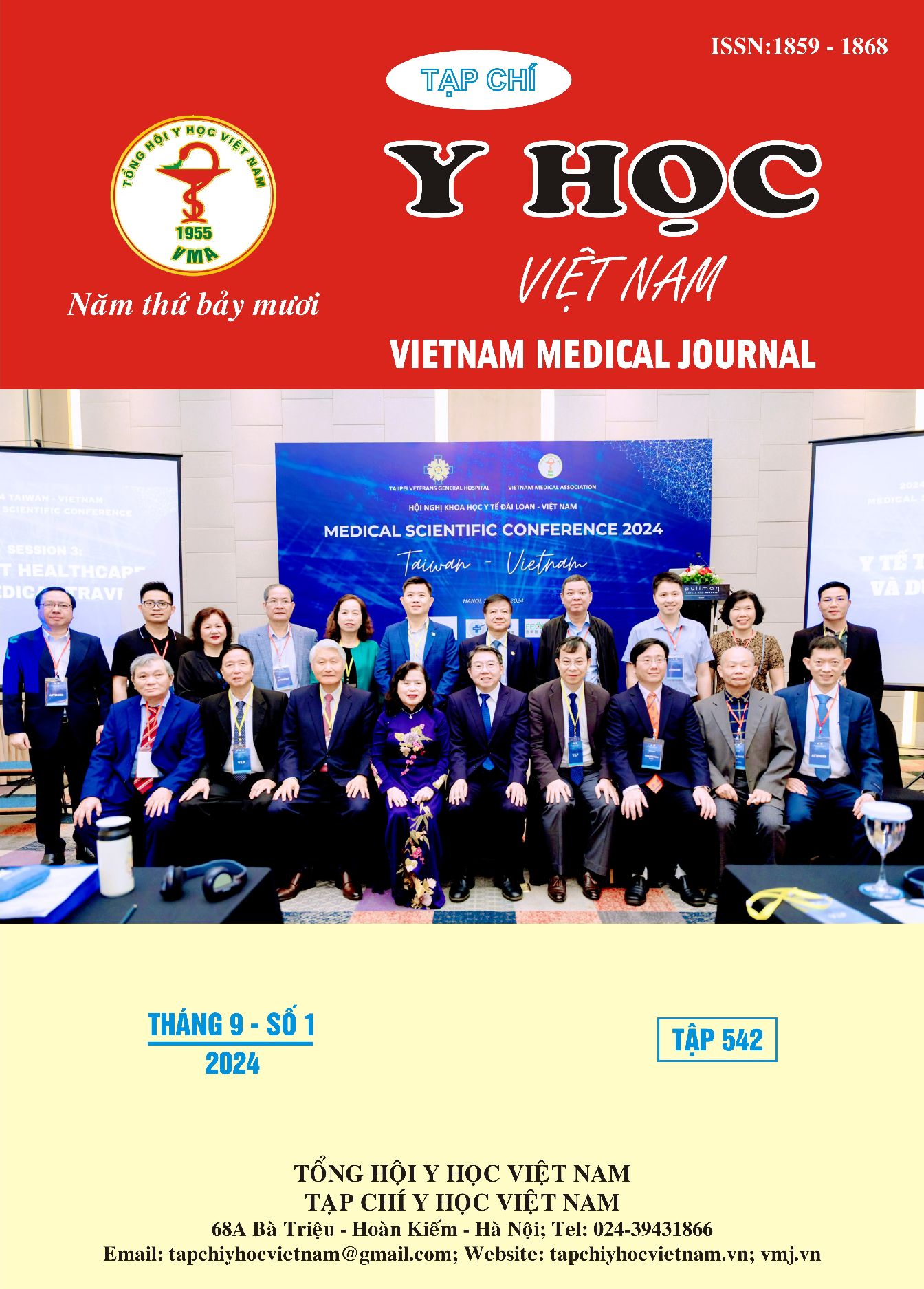EXPRESSION CD44 CANCER STEM CELL’S MARKER IN COLORECTAL ADENOCARCINOMA
Main Article Content
Abstract
Background: Colorectal cancer is the third most common disease and has a high mortality rate in both sexes. In Vietnam, colon cancer is the fifth most common type in cancer incidence. Research on the application of cancer stem cells as markers for diagnosis and prognosis in colorectal cancer is a research trend in this disease, including CD44, a cancer stem cell marker related to colorectal cancer. related to the development, differentiation, survival of cells as well as metastasis of cancer cells. Objectives: to investigate the expression pattern of CD44 in the epithelium of colorectal cancer and determine the relationship with pathological features and disease stage. Materials and methods: Cross-sectional study including 102 colorectal cancer samples that met research criteria and immunohistochemical staining at 30-4 Hospital from 2021 to 2022. All samples were stained with antibodies anti-CD44. Expression patterns were evaluated using 3 scales from 3 different authors (Ribeiro, Tunugungtla and Gaber). Results: positive CD44 expression accounted for 70.6% according to the Ribeiro score, and according to the Tunuguntla and Gaber scores, high expression of CD44 was 23.5% and 15.7%, respectively. There is a statistically significant relationship between CD44 expression and age group (p=0.021), metastatic lymph nodes (p=0.005), tumor stage (p=0.037), and disease onset time (p= 0.036), colon circumferential infiltration (p=0.034). Conclusions: The difference in CD44 expression according to 3 different scales is statistically significant. There is a statistically significant relationship between CD44 expression and age group, metastatic lymph nodes, and tumor stage (according to the Ribeiro scale); with disease onset time and colon circumference infiltration (according to the Tunuguntla scale).
Article Details
Keywords
CD44, H-score scale, Colorectal Adenocarcinoma
References
2. Siegel RL., Miller KD., Sauer AG., et al. Colorectal Cancer Statistics. CA Cancer Journal for Clinicians. 2020, vol.70, pp. 145–164.
3. Gaber AG., Abdallaha AZ., Shabanb SH., et al. CD44 as a prognostic marker in early colorectal cancer: single center experience “South Egypt cancer institute, Egypt. Alexandria Journal of Medicine. 2023, vol. 59(1), pp. 68–74.
4. Tunuguntla A., Suresh TN., et al. Association Between the Immunohistochemistry Expression of E-cadherin, Beta-Catenin, and CD44 in Colorectal Adenocarcinoma. Cureus. 2023, vol.15(3): e35686. DOI 10.7759/cureus.35686.
5. Ribeiro KB, da Silva Zanetti J, Ribeiro-Silva A, et al. KRAS mutation associated with CD44/CD166 immunoexpression as predictors of worse outcome in metastatic colon cancer. Cancer Biomark. 2016, vol.16(4), pp. 513-521.
6. Holaha NS., Aiada HA., Asaada NY., et al. Evaluation of the role of CD44 as a cancer stem cell marker in colorectal carcinoma: immunohistochemical study. Menoufia Medical Journal. 2017, vol. 30(1), pp. 174-183.
7. Sadeghi A., Roudi R., Mirzaei A., et al. CD44 epithelial isoform inversely associates with invasive characteristics of colorectal cancer. Biomarker Medicine. 2019, vol.13(6), pp. 419–426.
8. Wang Z., Tang Y., Xie L., et al. The Prognostic and Clinical Value of CD44 in Colorectal Cancer: A Meta-Analysis. Frontiers in Oncology. 2019, vol 9 (309), pp1-11.


